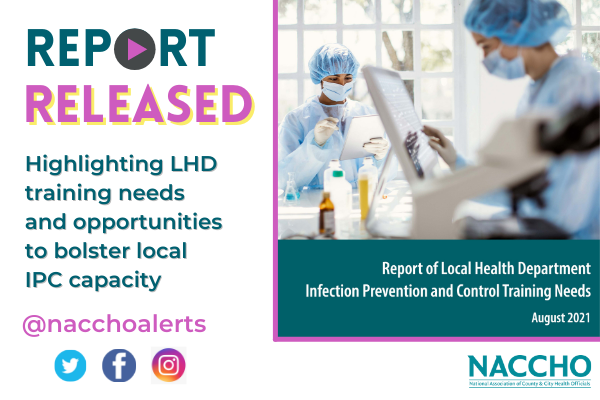Infection prevention and control (IPC) describes an approach that aims to prevent the spread of infections in healthcare settings, including healthcare-associated infections (HAIs) and emerging infectious diseases. The COVID-19 pandemic, caused by the novel coronavirus SARS-CoV-2, led many local health departments (LHDs) to rapidly expand and transition their role and engagement in IPC activities in various settings. It also revealed critical opportunities to improve IPC and heightened awareness in communities of the importance of public health across settings. LHDs demonstrate willingness to meet these challenges head-on, and it is important they are provided with the training and resources to be successful.
The Center for Disease Control and Prevention’s (CDC’s) Project Firstline strives to equip public health and frontline healthcare workers with infection control principles and protocols so they can confidently apply them to protect themselves and their facilities, families, and communities. To advance LHD engagement in IPC activities, NACCHO, in partnership with Project Firstline, released a new report highlighting the IPC activities conducted by LHDs, their training needs, and opportunities to bolster IPC capacity at the local level.
The report recommends ways for NACCHO and Project Firstline to address LHD needs and may also serve as a reference for LHDs regarding opportunities to train their staff engaging in IPC activities.
Read the full report here.



